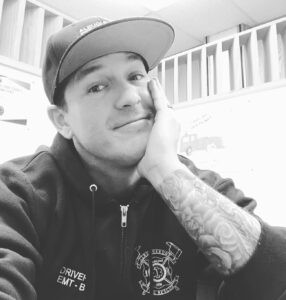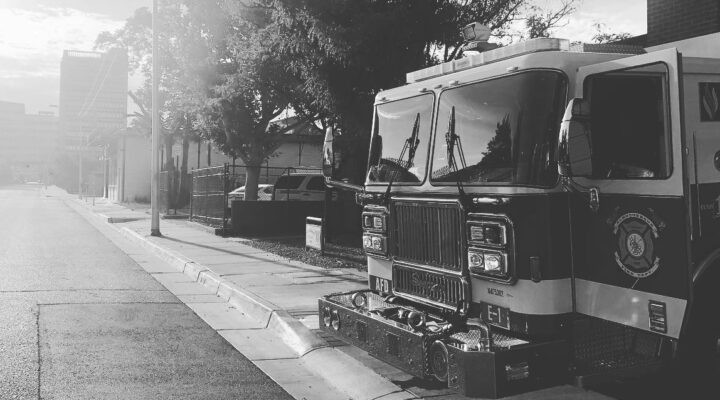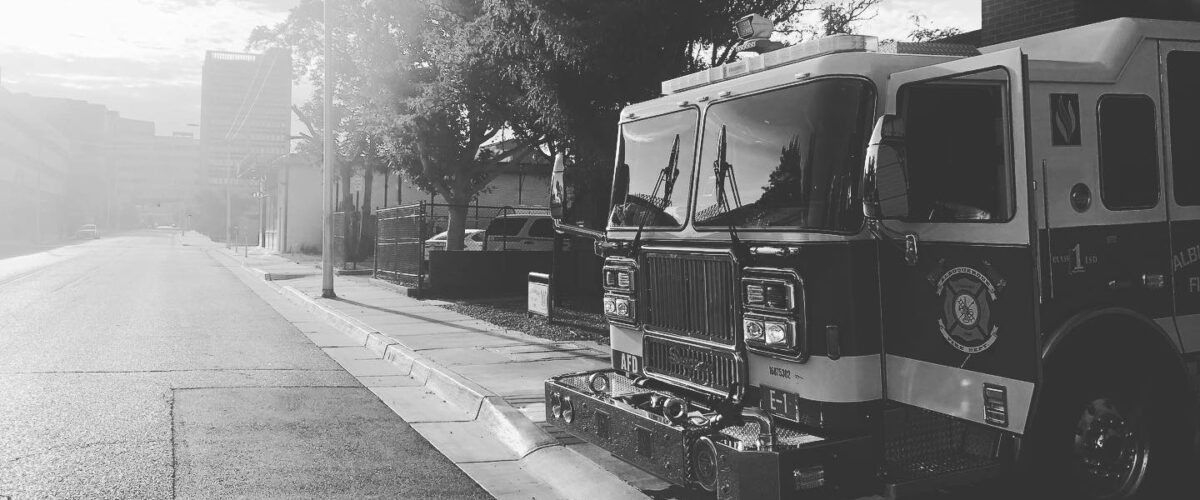There was nothing heroic about it. Wasn’t terribly difficult. Just good old-fashioned kindness and people being good to people.
We never got any tones. We did, however, get a knock on the station door. It was an older couple. They were so apologetic for “interrupting” our dinner. They explained their situation. No emergency, just needing some help for a dying family member.
A stunningly gorgeous older woman who was battling cancer. In hospice care, she was just hours away from passing. Her long hair and sweet smile. Angelic even. You couldn’t tell today would be her last.
It was the engine, the ladder and the rescue. The whole station was there to simply help her move from one bed to another bed. Simple. All this manpower for the most simple of tasks. The owner of the house sobbed when we all arrived.

David Meyers
The crew was amazing. Laser focused. Everyone helping where they could. Amazingly courteous and professional but even more than that, they were kind.
There was an amazing calm and holiness in that house that was tangible. She was lovely. She was so sweet and perfectly at peace. And for the numerous family and friends who also were there, it was a very sacred moment. There was a holy hush that was palpable.
They shook our hands and hugged our necks.
One lady kissed each of us on our cheeks as we made our way out.
After we finished and began to leave, the woman grabbed my hand, thanked me, and told me, “This is one of the best days I’ve ever had.”
What do you say to that?
“Have a good one?”
“Take it easy.”
So, I chose to be silent. I squeezed her hand and smiled at her. Got back in the engine a lot teary-eyed and thankful that I was a part of something so beautiful.
At dinner, nobody said a word. A house full of alpha-male jerks, completely silent. Being a part of something so holy and experiencing moments that are bigger than yourself tend to leave people speechless.
“Being a part of something so holy and experiencing moments that are bigger than yourself tend to leave people speechless.”
I don’t think I can adequately explain what we experienced that day, but it was one of those moments that will forever be seared on my heart.
Her husband came by the station the next week. He looked just like Wilford Brimley. He had on a brown fedora, a leather jacket, and he was puffing on a cigar behind his giant yellow mustache.
“Are you C”, he said?
I had the bay door open as I was outside washing the truck. He had caught me off guard.
“Excuse me, sir. I didn’t catch what you said.”
“Are you C?”
“Oh … yes … C shift, yes, sir.”
“We’re you the ones who helped out my wife?”
Then I realized who I was talking to.
“Yes, sir, that was us.”
“I want you to know that that was a special day for us. I wanted to tell you that she passed later that night,” he said.
“I’m so very sorry to hear that,” I replied.
“It meant so much to me that you would do that. You don’t know what you did.”
He then handed me a card which the whole family had signed. He started tearing up. He shook my hand, tipped his cigar to me and left.
It’s not often that we get to restore people their dignity in death. I’d like to think that that day, we did.
David Meyers is a firefighter and fire department chaplain, recording artist and worship leader who lives in Albuquerque.
Related articles:
Ethics at the end of life: How medicine and technology have changed the context of dying | Opinion by David Gushee
Compassion is the work of seeing, of making invisible people visible | Opinion by Doyle Sager


